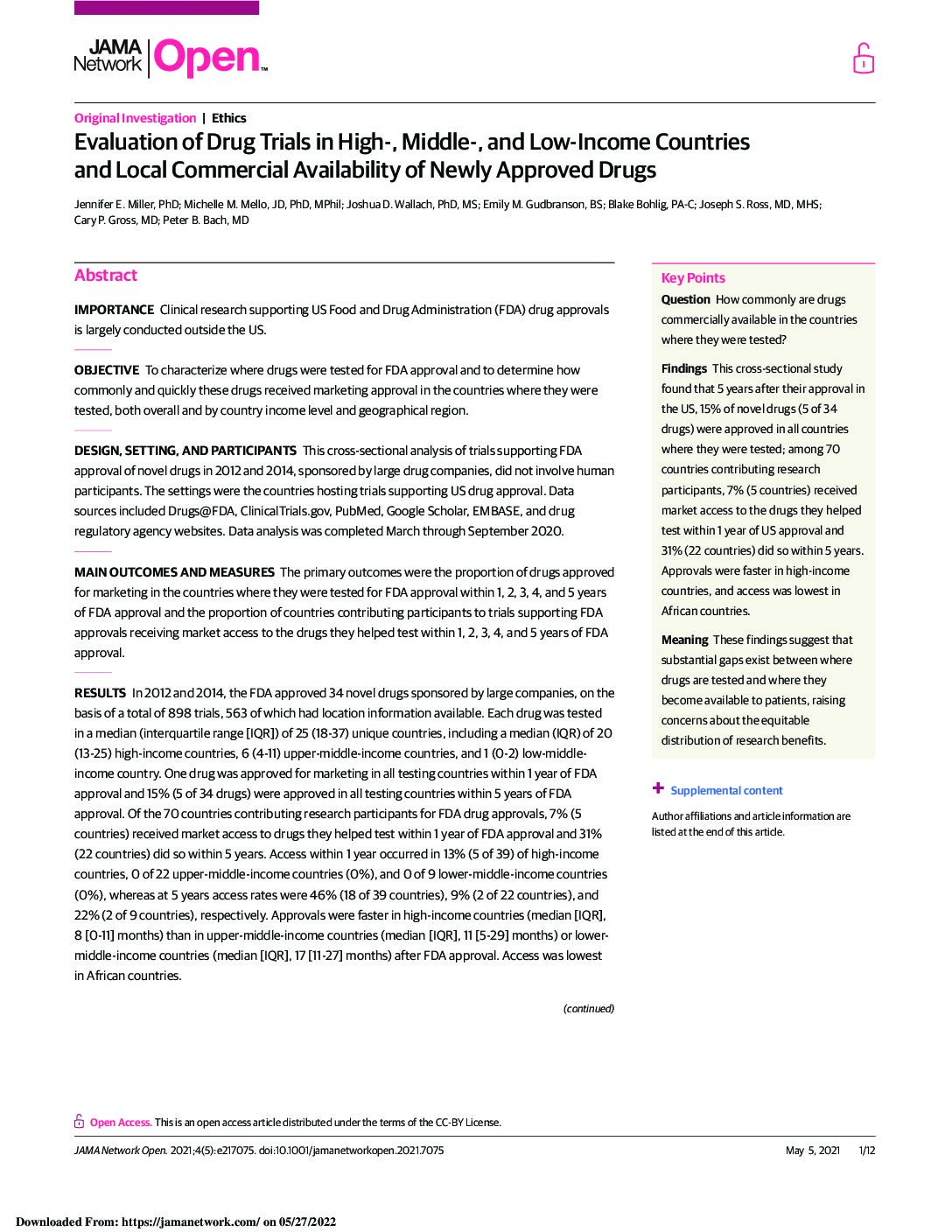
June 24, 2025 8:00am to 6:00 pm
Join us for Bioethics International & EY’s 16th Annual Pharmaceutical Executive Roundtable w/ Yale’s Program for Biomedical Ethics & Scientific American
Ethics, Trust + Patient Centricity in Pharma: Defining Metrics for Success
June 24, 2025 8:00am to 6:00 pm
Join us for Bioethics International & EY’s 16th Annual Pharmaceutical Executive Roundtable w/ Yale’s Program for Biomedical Ethics & Scientific American
Ethics, Trust + Patient Centricity in Pharma: Defining Metrics for Success
June 24, 2024 8am - 4pm
September 15, 2023 8am-3pm
This year’s roundtable (in its 14th year) will focus on metrics + strategies for advancing bioethics, patient-centricity + health equity across the bio-pharmaceutical sector and amplifying + connecting participants’ work in these areas. Discussions may inform agenda-setting + metrics development for the Good Pharma Scorecard. Sessions will begin w/ opening remarks + transition to open discussion.
The New York Times interviewed our founder, Jennifer Miller, on FDA Commissioner Dr. Scott Gottlieb's clinical trial transparency initiatives. She discussed his new pilot, launched last month, which selects 9 recently-approved drugs, whose sponsors (generally pharmaceutical companies) volunteer to participate, to post portions of Clinical Study Reports (CSRs) from their pivotal trials on FDA's website…
February 12, 2018
This week we focused on the ethics of Big Data, publishing an article titled, Big Data Probably Knows More About You Than Your Friends Do, in Leaps Mag. The article discusses the promises and perils of big data and concludes with a way to manage your data wealth. To read the full article click here.
February 7, 2018
Objective To develop a measure for fair inclusion in pivotal trials by assessing transparency and representation of enrolled women, older adults (aged 65 years and older), and racially and ethnically minoritized patients.
Design Retrospective cross sectional study of sponsors of novel oncology therapeutics approved by the FDA 2012-2017
Results Between 2012 and 2017, the FDA approved 59 novel cancer therapeutics, submitted by 25 sponsors (all industry companies) on the basis of 64 pivotal trials. All 25 sponsors (100%) reported participant sex, 10 (40%) reported age, and six (24%) reported race and ethnicity. Although 14 (56%) sponsors had adequate representation of women in trials, only six (24%) adequately represented older adults, and four (16%) adequately represented racially and ethnically minoritized patients (black, Asian, Hispanic or Latinx). On overall fair inclusion, one sponsor scored 100% and the median sponsor score was 81% (interquartile range 75-87%). More than half of sponsors (13 (56%) of 25) fairly included women, 20% (n=5) fairly included older adults, and 4% (n=1) fairly included racially and ethnically minoritized patients in trials. 80% of product had pivotal trials that fairly included women, 24% fairly included older adults, and 5% fairly included racially and ethnically minoritized patients.
, Gross CP, Miller JE., Metrics, baseline scores, and a tool to improve sponsor performance on clinical trial diversity: retrospective cross sectional study,

Question How commonly are drugs commercially available in the countries where they were tested?
Findings This cross-sectional study found that 5 years after their approval in the US, 15% of novel drugs (5 of 34 drugs) were approved in all countries where they were tested; among 70 countries contributing research participants, 7% (5 countries) received market access to the drugs they helped test within 1 year of US approval and 31% (22 countries) did so within 5 years. Approvals were faster in high-income countries, and access was lowest in African countries.
Meaning These findings suggest that substantial gaps exist between where drugs are tested and where they become available to patients, raising concerns about the equitable distribution of research benefits.